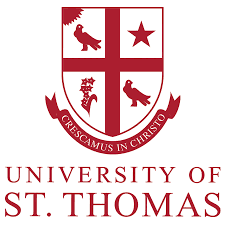

At the University of St. Thomas in Houston, salary expectations for faculty and staff are typically determined by a combination of role, academic rank, years of experience, and field of expertise. Salaries often vary significantly between disciplines, with higher compensation in areas like business, law, and STEM compared to humanities. While the university does not publicly disclose detailed salary bands or specific compensation data for all positions, it adheres to industry standards for private liberal arts institutions in Texas. Salaries are generally set through internal policies and may be influenced by market trends, institutional budgets, and individual negotiations during hiring.
Salaries at the University of St. Thomas, Houston, are generally competitive within the context of private Catholic universities of similar size in the region. Compensation tends to align with benchmarks for higher education institutions in Texas, though it may lag behind larger research universities. Progression in salary often depends on tenure, performance reviews, and contributions to the university’s mission. For prospective employees, it’s worth noting that while exact figures are not always publicly available, the university strives to offer fair remuneration reflective of market conditions and institutional values. Additional benefits, such as health insurance and retirement plans, often complement base salaries.